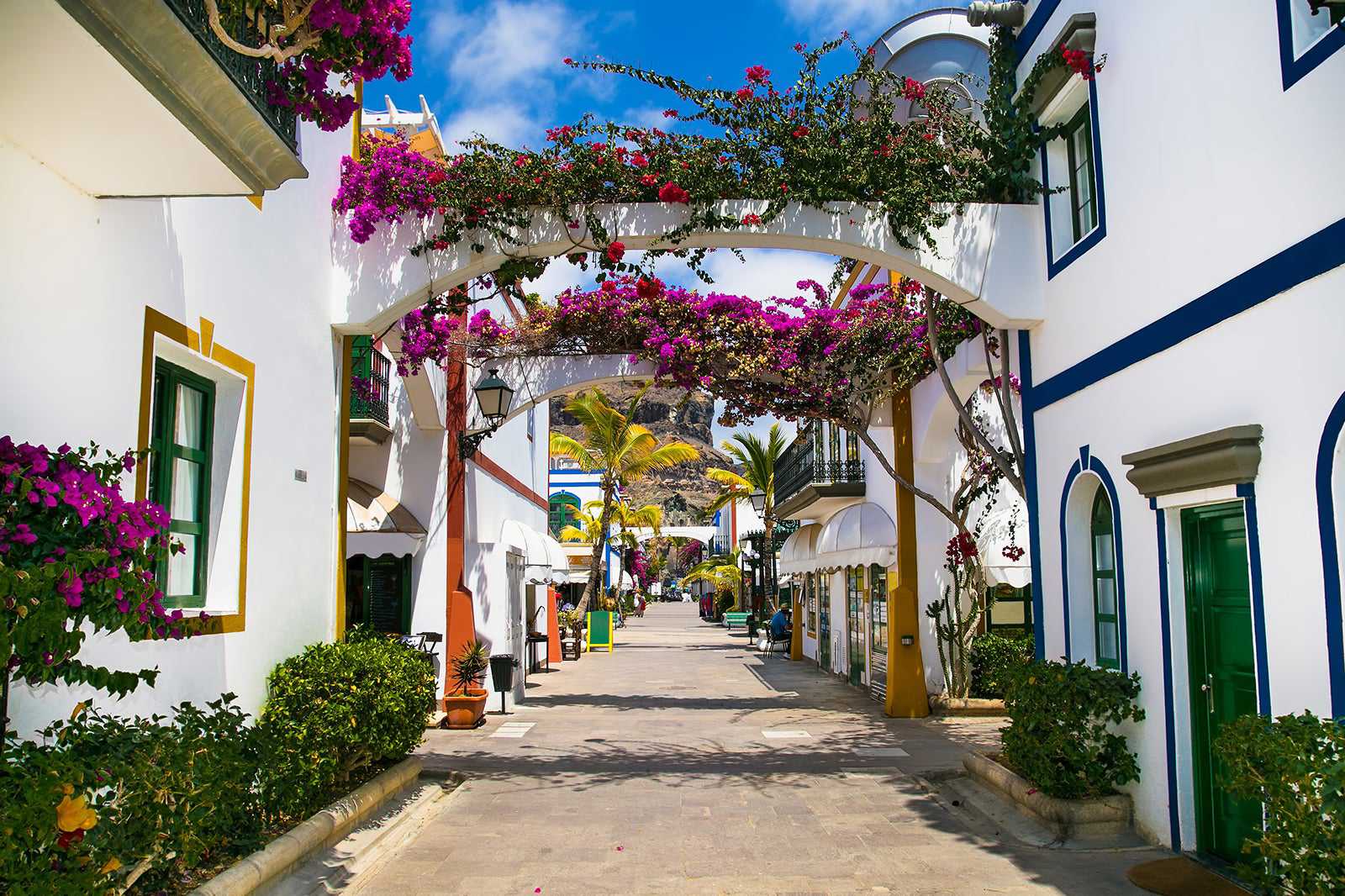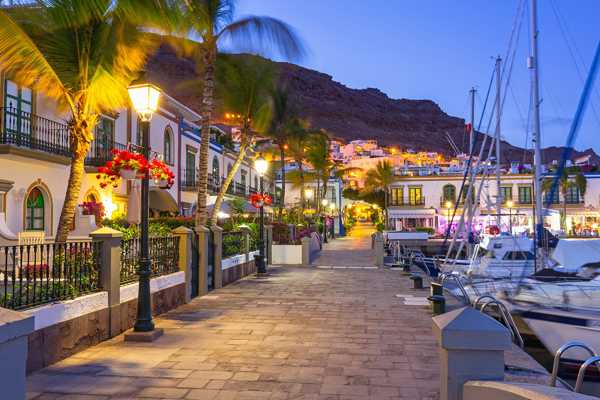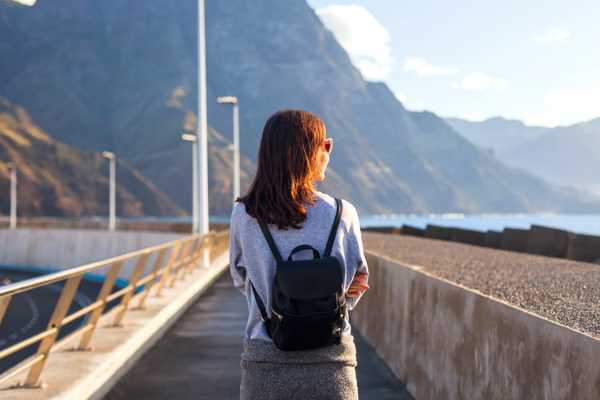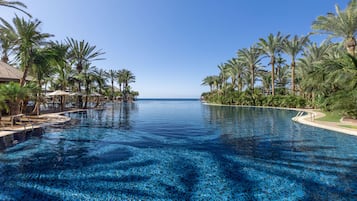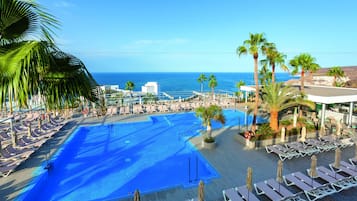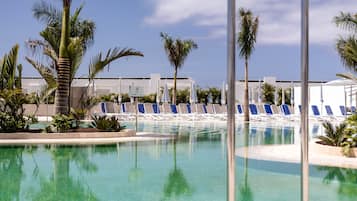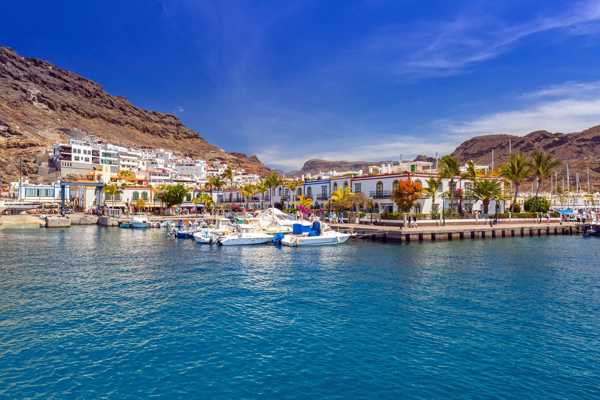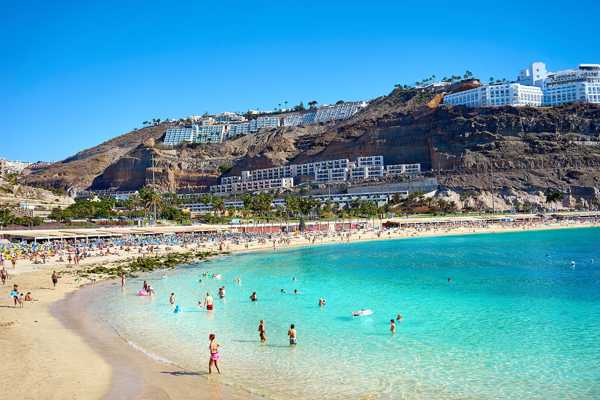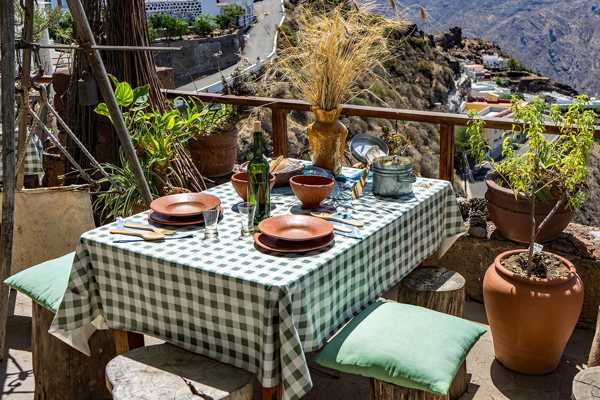Gran Canaria is a marvellous island filled with natural and historical heritage sites and stunning geography. Some sites you can reach on foot yet they will lift you up to the heavens nonetheless. Others are by the sea, with their beaches and people that typify this beautiful corner of the world. On your wanderings you will find vestiges of the island's first inhabitants and those that followed them later, as well as signs of long lost economic activities. Learn about the best free things to do in Gran Canaria for an exciting and memorable holiday.
- 1
Enjoy Mogán's landscapes
Nine routes through nature and 365 days of sunshine a year
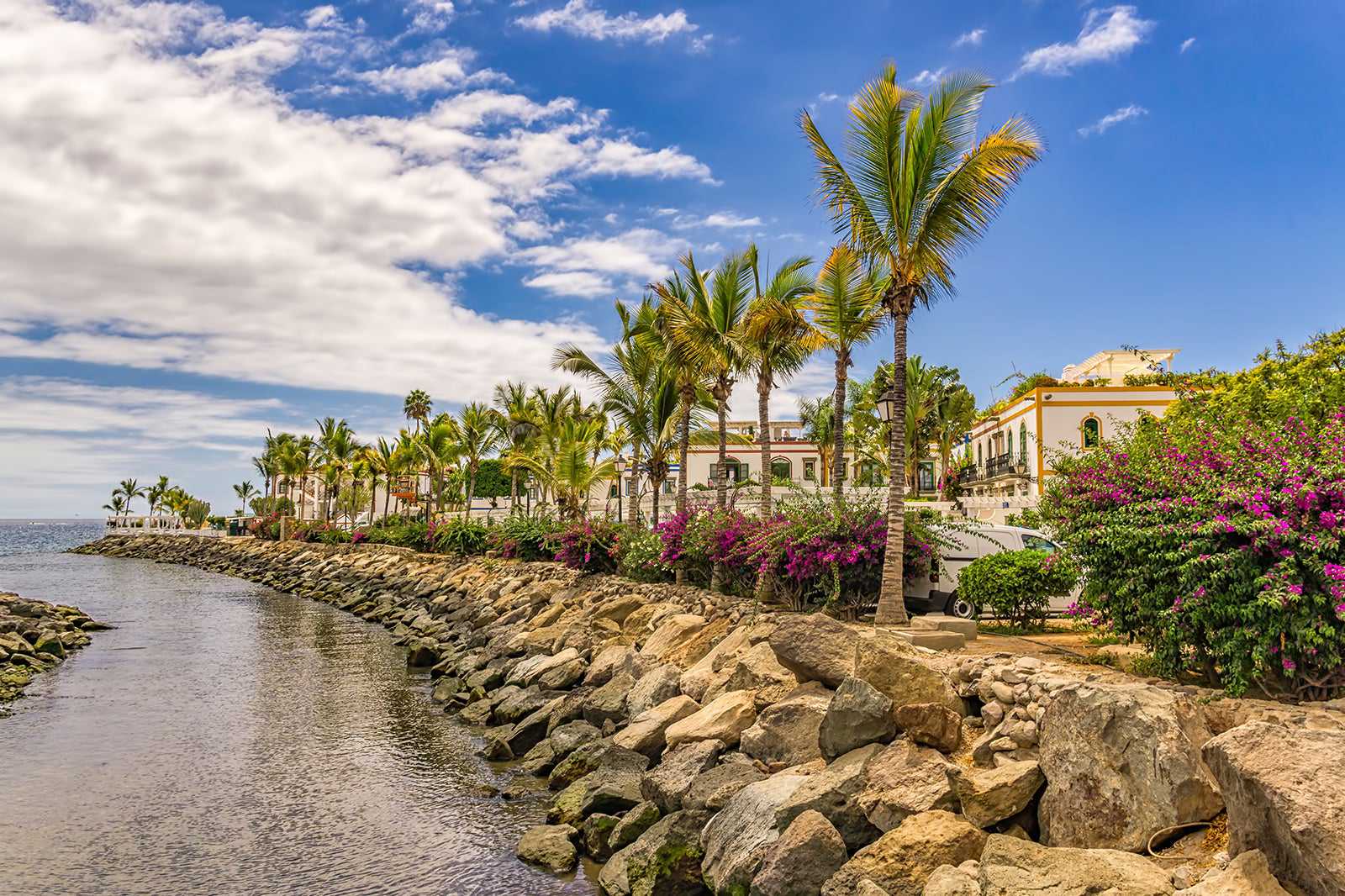
- Avontuur
- Goedkoop
- Stellen
- Gezinnen
- Foto
Mogán is well known for its stunning protected landscapes, enjoyed by locals and visitors alike. In total, there are 9 well-maintained and signposted routes between 4 and 7 miles long, with different levels of technical difficulty. These routes take you through Gran Canaria's characteristic landscapes with its ravines and ridges, the curious geo-morphological phenomena known as 'azulejos' (tiling) and its springs and old water channels. The contrast of the more arid areas with the lush green sections through the ravines and barrancos and the willow galleries that grow alongside the streams add further interest to the route.
Kaart - 2
Discover the Nublo Rural Park
Gran Canaria's most spectacular sunsets
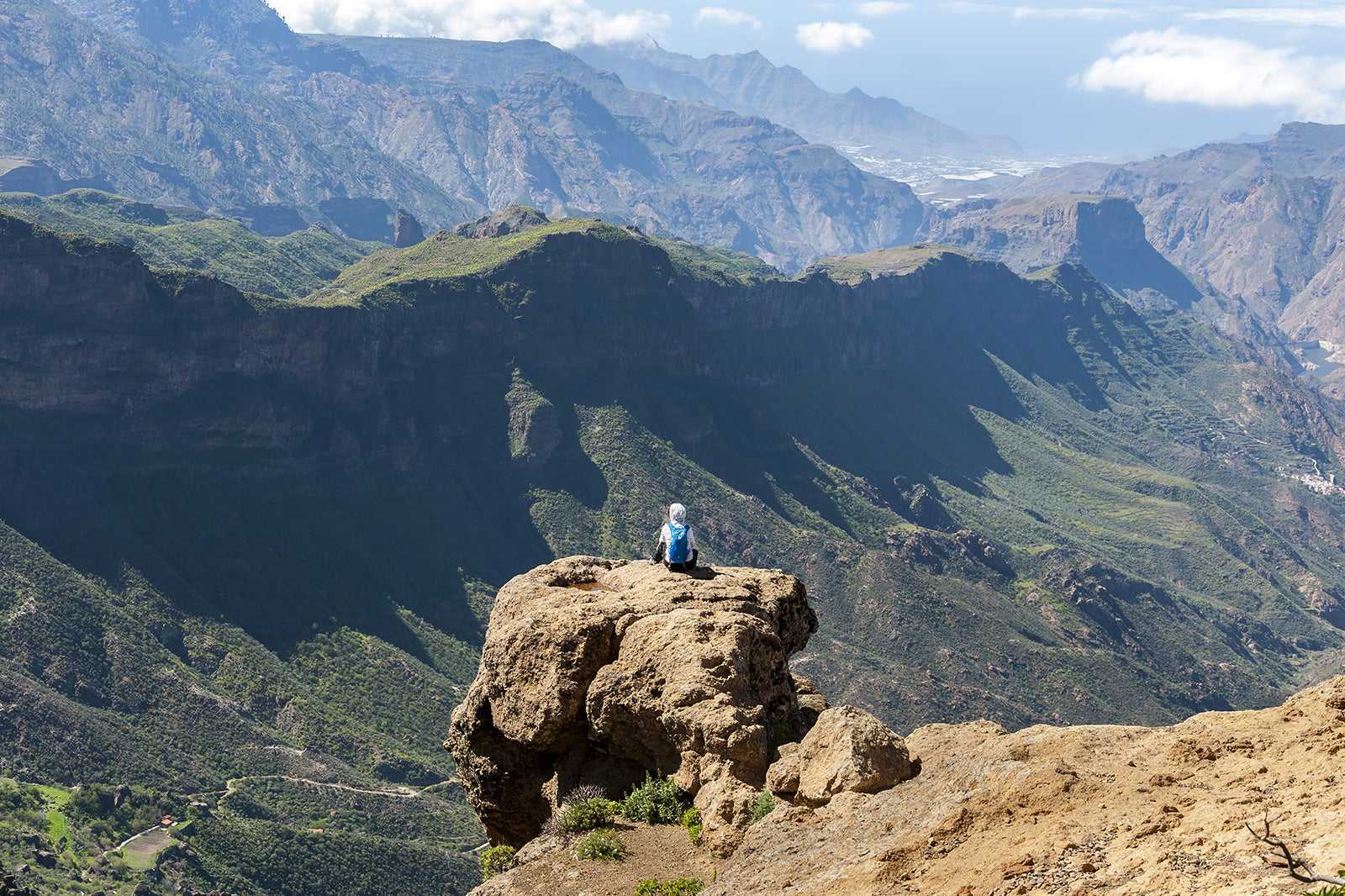
- Avontuur
- Goedkoop
- Foto
Nublo Rural Park's Roque del Nublos is a volcanic monolith about 80 metres high that has become the symbol of the island. It is one of Gran Canaria's must-visit sites due to the beauty of its natural setting. Best of all are the various routes that go from the base of the rock – one is relatively short and easy for all. Climb up to 1,750 metres and you will find 2 other photogenic rock formations, El Fraile and La Rana (the Friar and the Frog), as well as El Nublo. On clear days, you can see the island of Tenerife, seemingly suspended between the sky and the sea. The sunsets here are absolutely stunning.
Locatie: GC-600, 5, km 11, 35360 Tejeda, Las Palmas, Spain
Kaart - 3
Admire the Inagua Integral Natural Reserve's pine forests
The best-conserved pine forests
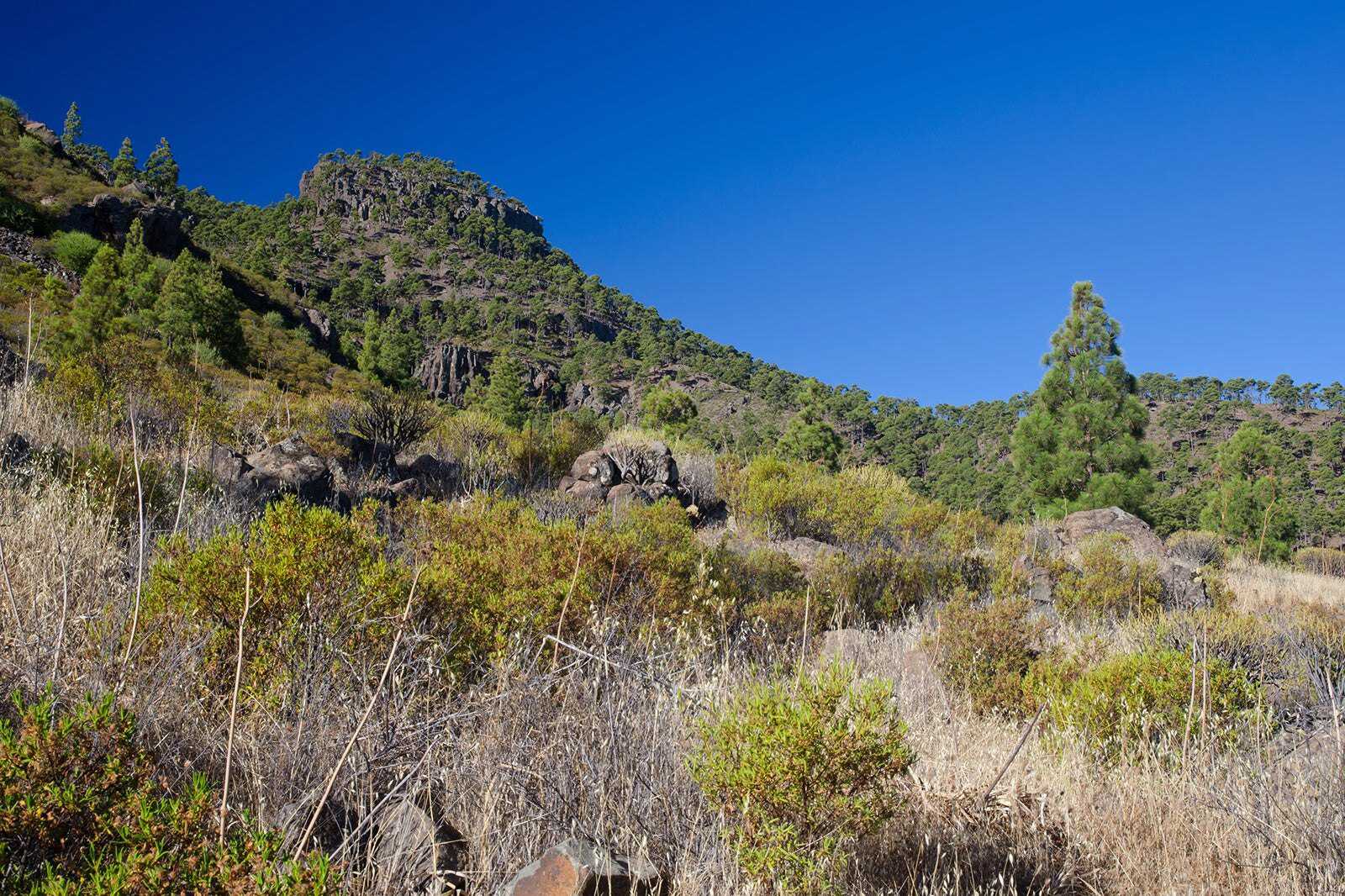
- Avontuur
- Goedkoop
- Foto
The best-conserved pine forests
Openingstijden: Inagua Integral Natural Reserve's pine forests are an area of considerable ecological importance, as they contribute to rainwater collection in the ravines, anchor the soil and are home to endangered species of endemic fauna or flora. The forests are home to the Gran Canaria blue chaffinch, endemic to the island and which has been the subject of numerous repopulation programmes. The natural reserve stretches over a number of mountains, including Inagua, at a height of 1,426 metres. It is criss-crossed with footpaths that offer a magnificent chance to get to know these landscapes and archaeological sites, such as the 'almogarenes guanches' (sacred meeting places for the Guanche, the aboriginal Berber inhabitants of the Canary Islands).
Kaart - 4
Travel back in time at the Punta Mujeres site
Discover the island's rich history without leaving the beach
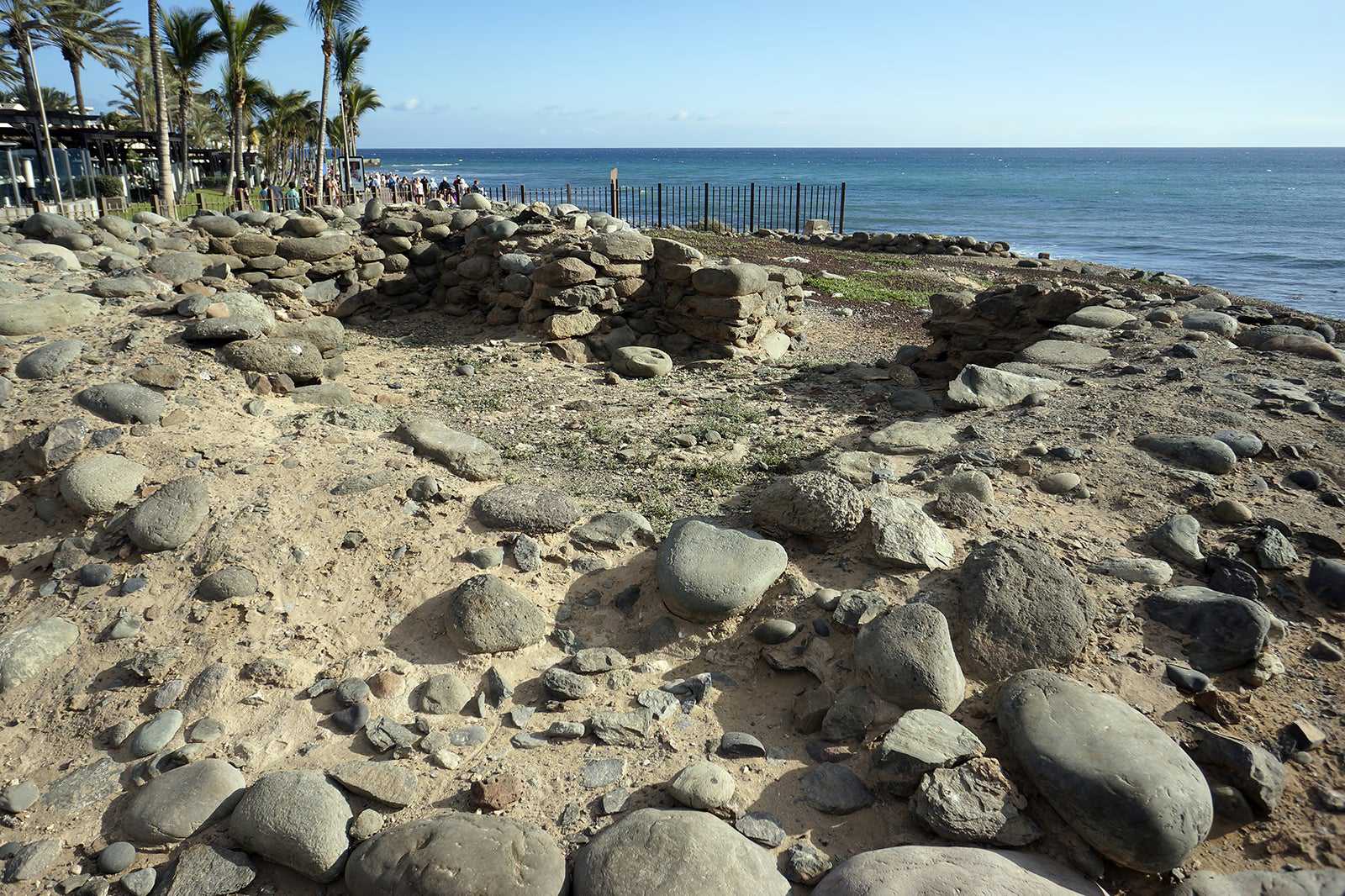
- Goedkoop
- Geschiedenis
At the Punta Mujeres archaeological site, you'll find the remains of a coastal settlement that may date back to the 7th to 9th centuries and which may have been inhabited until the 15th century, classifying it as pre-Hispanic. The site is made up of at least 3 dwellings, although due to the amount of animal remains that have been found and the abundance of fresh water and food available in the region, it is thought that there could have been many more. An explanatory panel gives further information on the origin of the island's first inhabitants and the administrative division of the island before the Spanish arrived.
Locatie: Lugar Meloneras Diseminado, 6, 35100 Maspalomas, Las Palmas, Spain
Kaart - 5
Climb to the Puerto de Mogán lookout point
Have your photo taken with the best views of the port
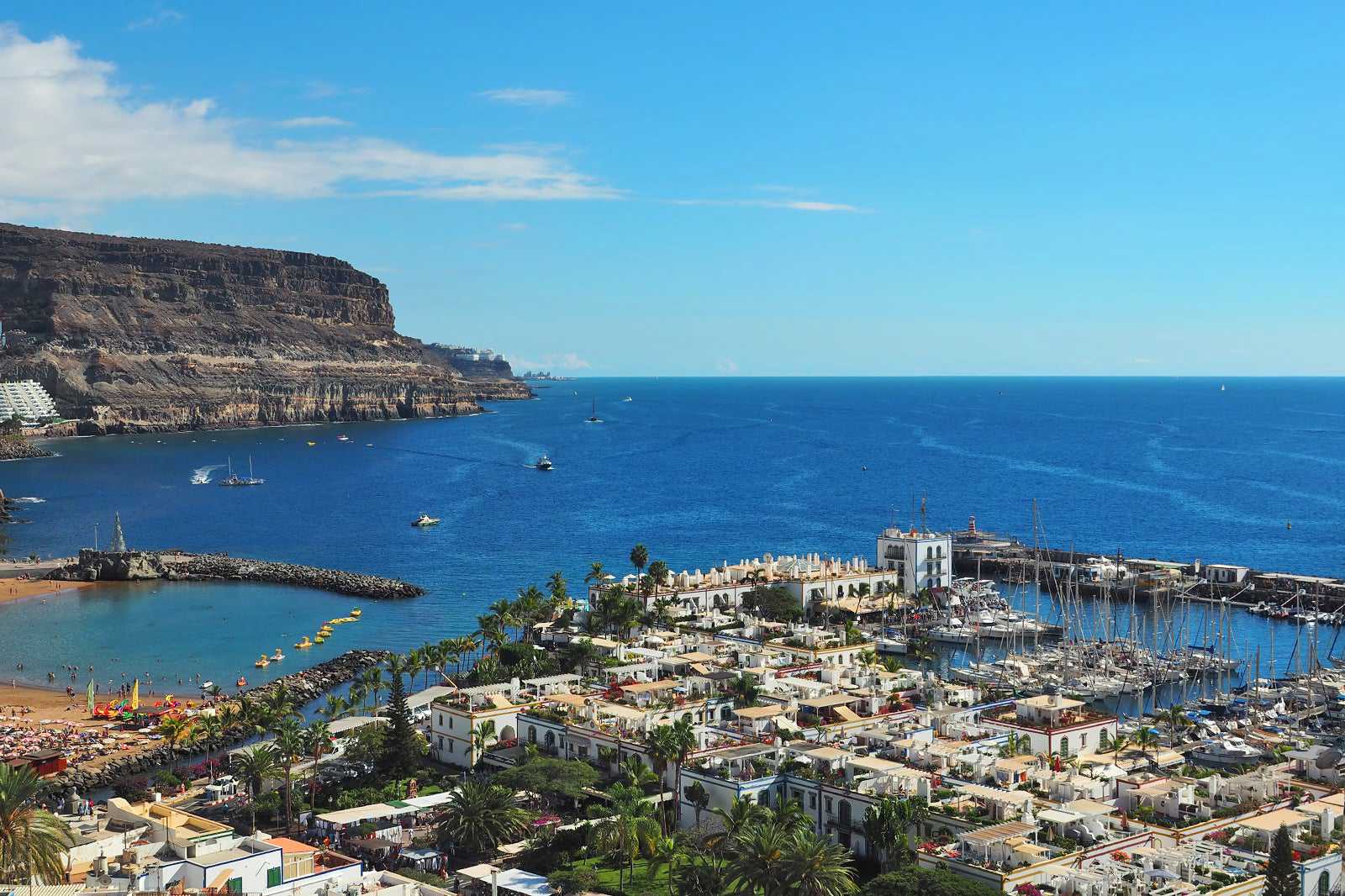
- Goedkoop
- Foto
The climb to the Puerto de Mogán lookout point is a tough ascent, but it doesn't require any special fitness, and your efforts will be rewarded by the charming narrow streets and the views from the top. Once at the lookout point, you can look out over the whole bay with its imposing cliffs, the port and a panoramic view of this beautiful town. This is a popular spot at dusk, owing to the spectacular sunsets. The landscapes here change with the light and the time of day but are never short of enchanting. It's an unmissable spot.
Locatie: Callejón las Conchas, 26, 35139 Lomo Quiebre, Las Palmas, Spain
Kaart - 6
Go for a swim at Mogán beach
The soothing effect of the sea from the water's edge
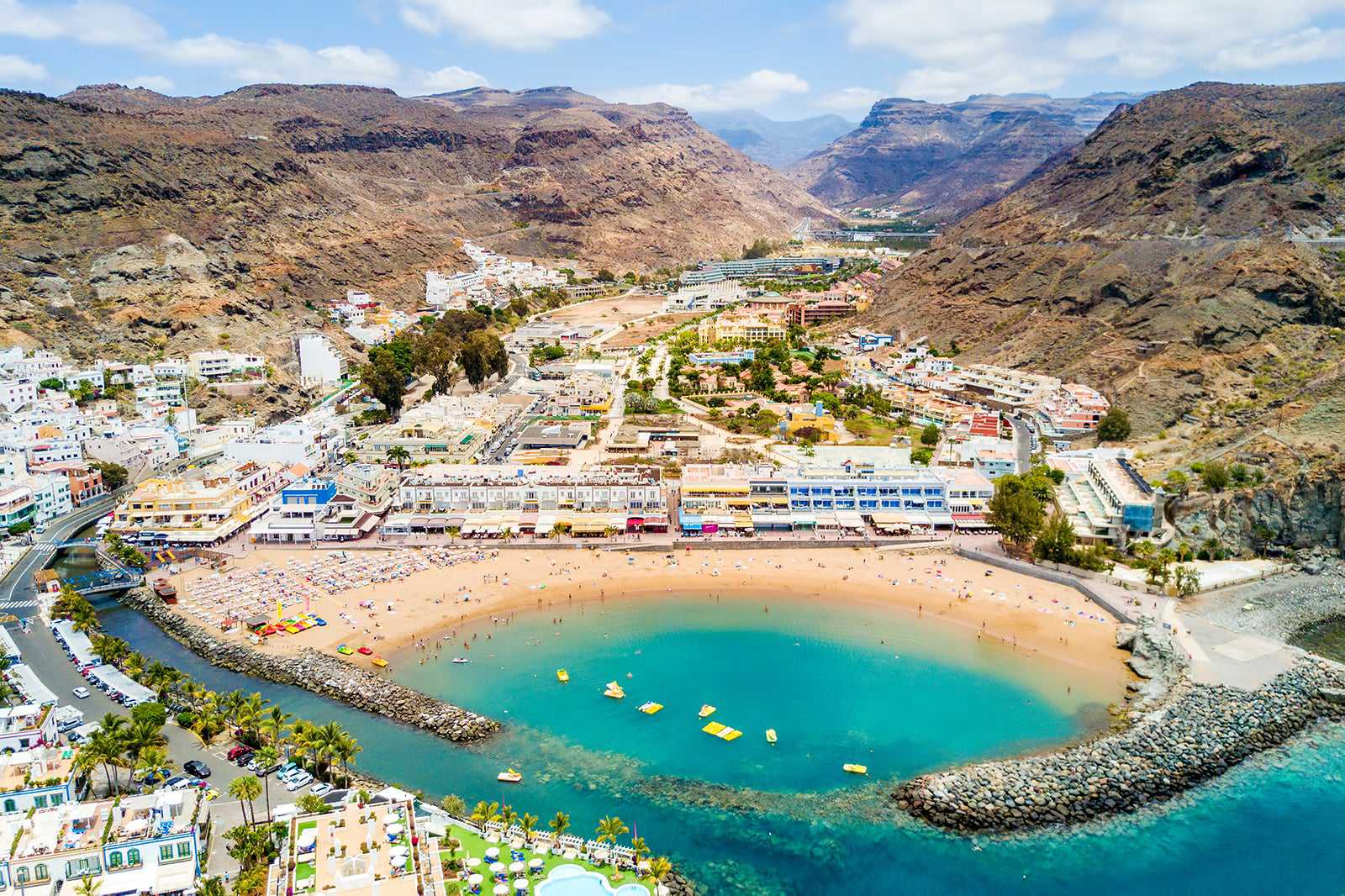
- Goedkoop
- Gezinnen
Strolling on the golden sands of Mogán Beach, at the foot of the mountains and next to sheer cliffs, you will feel the beauty of the world we live in. Of Mogán's almost 12 miles of coastline, this is the closest beach to the town and its places of entertainment. It has all the services you might need, from disabled access to areas for children. A further advantage is that the waters here are very calm, as smooth as a mill pond, perfect if you're travelling with children or you like snorkelling. The beach is popular with both tourists and locals.
Locatie: Calle Alcalde Miguel Marrero, 19, 35139 Lomo Quiebre, Las Palmas, Spain
Kaart - 7
Climb to the top of Mount Tauro
Get a bird's-eye view of the island
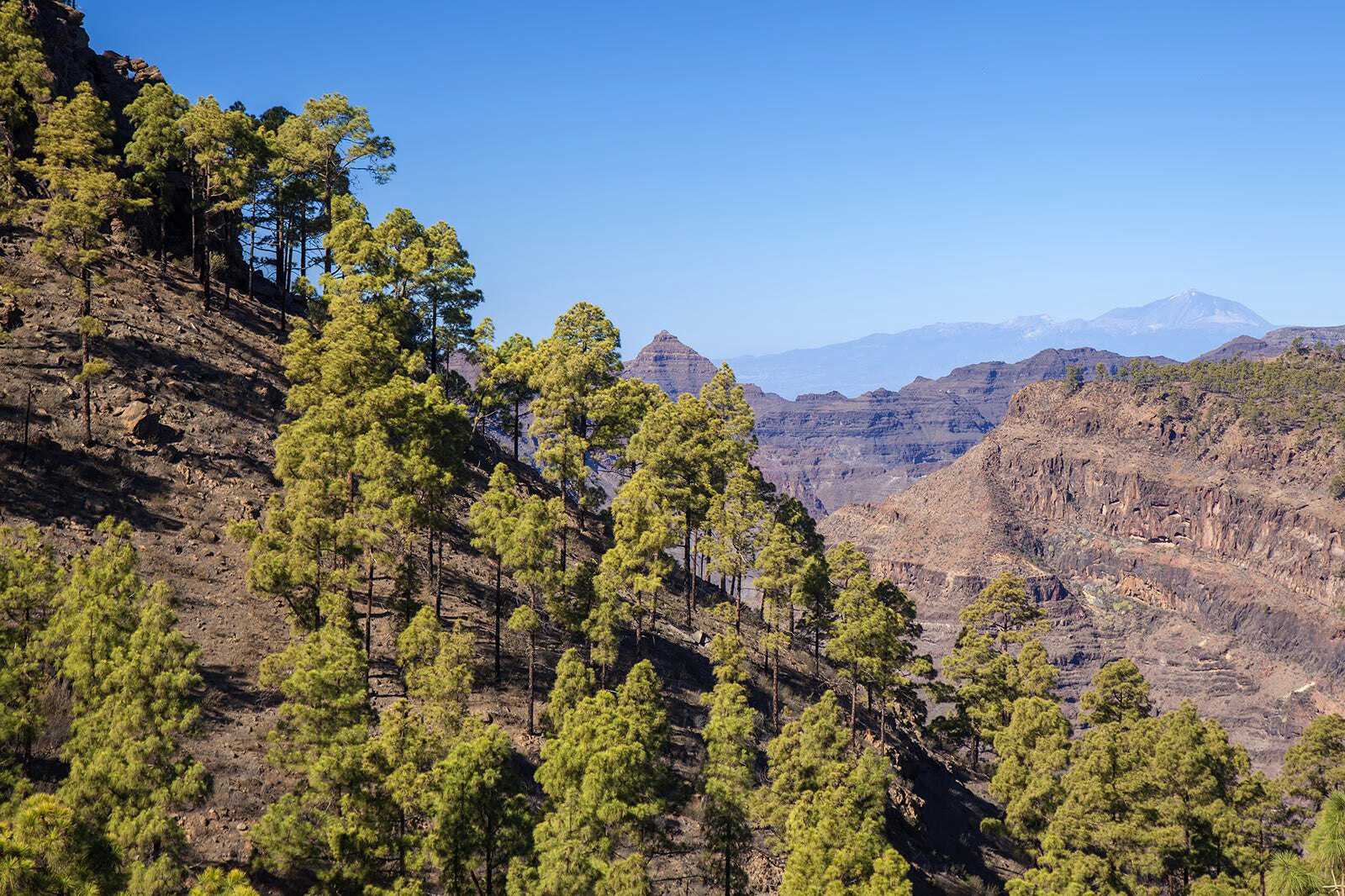
- Avontuur
- Goedkoop
Climbing to the top of Mount Tauro is a very popular outdoor activity in Gran Canaria. Although there are a number of routes, we suggest you start from the Salto del Perro reservoir. This is a circular 6-mile route. It is generally an easy hike, although some sections are a bit more difficult. We have chosen it for the contrasts it offers, which the most attentive will notice in the geomorphology. It is in one of the oldest parts of the island and therefore the area that has undergone the most changes. The vegetation also changes from young pine trees to a denser undergrowth, with mango and orange trees at the end of the route. The path takes you past an old tar kiln to the Mount Tauro lookout point. The pine trees in this part of the island have been used since the early 20th century for firewood, charcoal, resin and tar.
Locatie: Embalse del Salto del Perro, 35128 Las Palmas, Spain
Kaart - 8
Mogán's old burnt windmill
A chance to see a working windmill
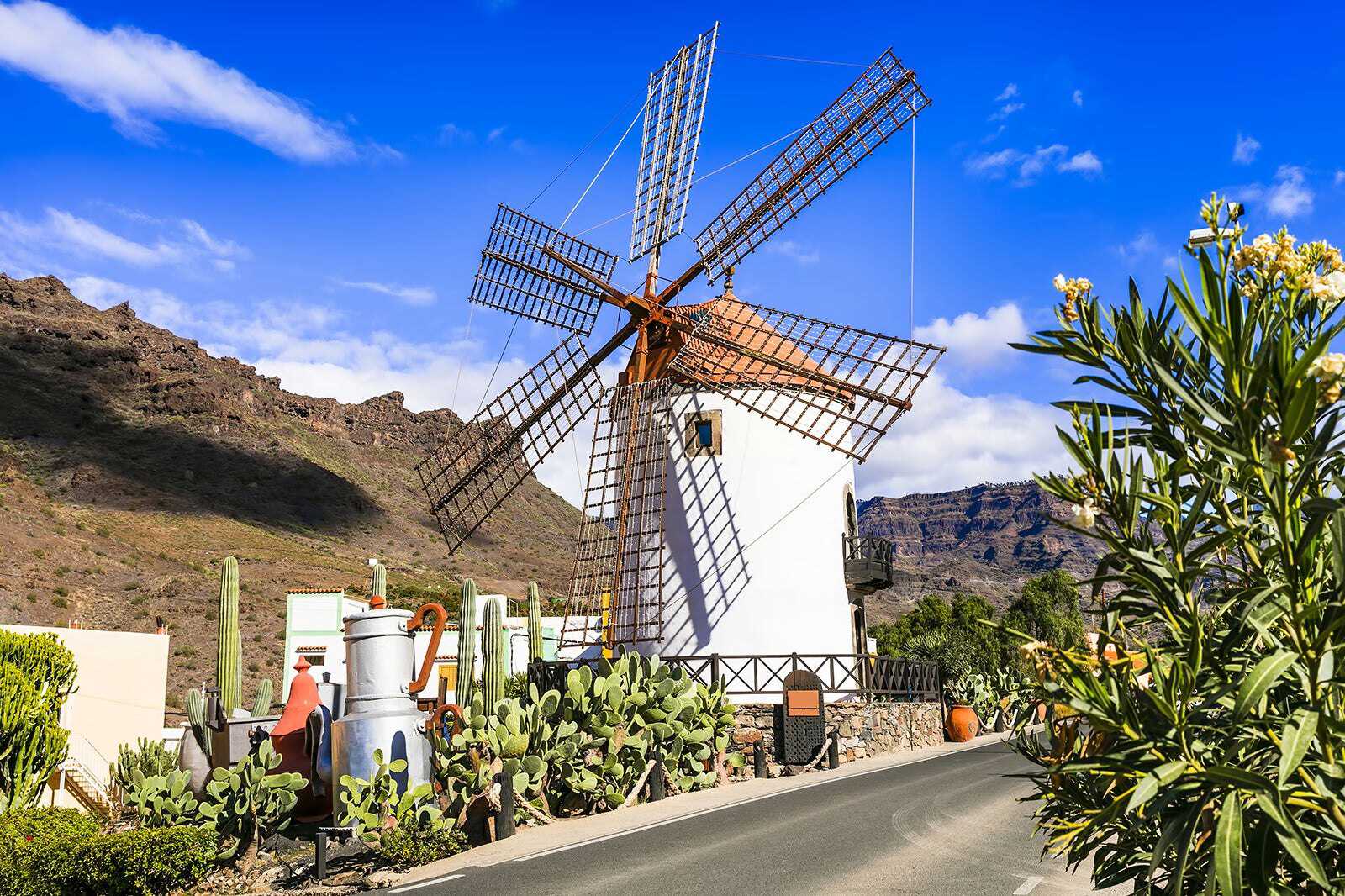
- Goedkoop
- Geschiedenis
Mogán's old burnt windmill dates back to the first half of the 19th century and has been renovated, is well maintained and is open to visitors. It was nearly destroyed by a fire in 1875, which apparently was started deliberately. It was abandoned for a long time, until the Asociación de Vecinos de Molino Quemado (a neighbourhood group formed to save the burnt mill) ensured that the building and its machinery could be painstakingly restored. The mill is surrounded by a beautiful cactus garden and huge figures of everyday objects that the locals carry in the processions to celebrate the feast day of Saint Anthony.
Locatie: Calle M Dolores Navarro Ramírez, 1, 35149 El Molino de Viento, Las Palmas, Spain
Openingstijden: 24/7
Kaart - 9
Go shopping at Mogán market
Buy souvenirs and presents at the local market
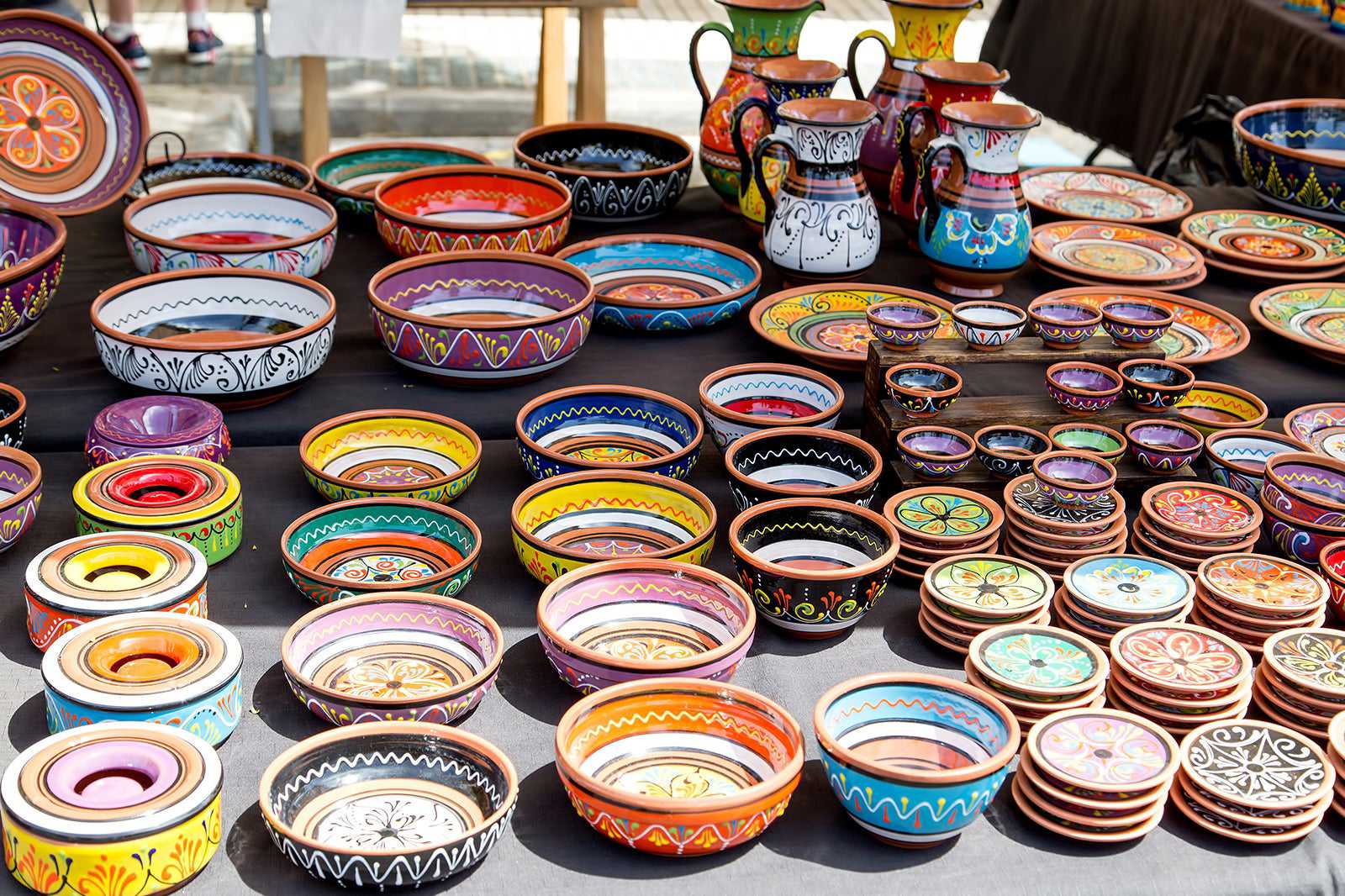
- Goedkoop
- Shoppers
Mogán market is a great reason to visit Mogán. Every Friday, the area is transformed by the massive influx of traders and tourists. Look for hidden gems and bargains among the stalls selling crafts, local produce, fruit and pretty much anything else you can think of. This market is so well known that travel agencies offer it as an unmissable excursion for those wishing to get to know Gran Canaria better. If your visit doesn't coincide with this market, find out about other alternatives. Almost every day, you can find a market somewhere in Mogán, each with its own character.
Locatie: Ctra. Vieja, 2D, 35139 Lomo Quiebre, Las Palmas, Spain
Openingstijden: Friday from 8 am to 2 pm (closed Saturday–Thursday)
Kaart - 10
Discover Mogán's San Antonio de Padua church
Experience the peace that reigns in the plaza in which the church stands
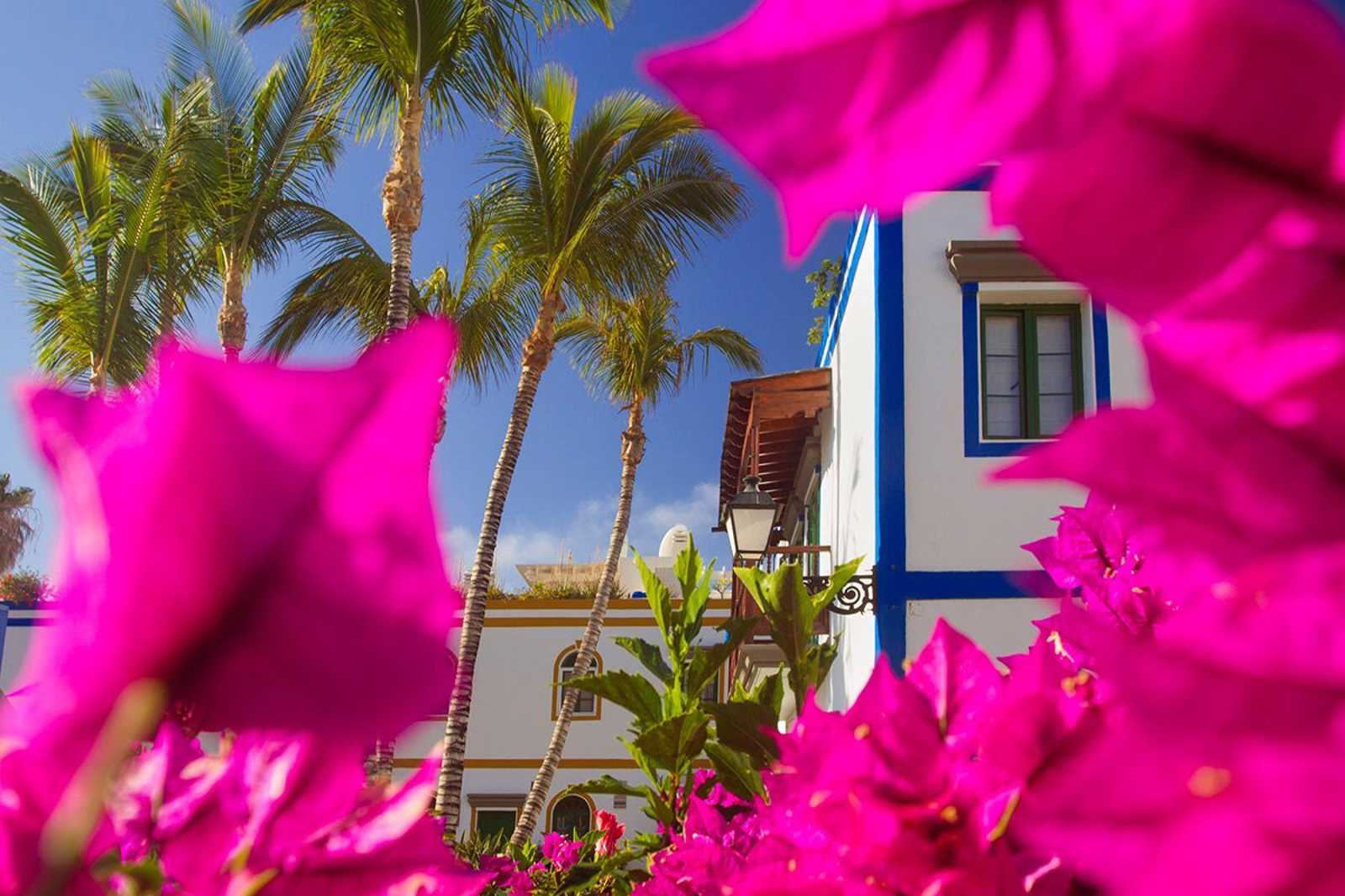
- Goedkoop
- Geschiedenis
San Antonio de Padua church is dedicated to Saint Anthony of Padua, the town's patron saint in whose honour its most important fiestas are celebrated. This beautiful building is over 200 years old, making it one of the island's oldest. It was built in 1814 on the instructions of Matías Sarmiento, a wealthy émigré to the Americas living in Havana, under the orders of the local artist, José Luján Pérez. It is definitely worth a visit, however brief, as this is a small, charming church that is well looked after and surrounded by enormous trees. It stands in the centre of Mogán's old town – you can't miss it!
Locatie: Calle Guardia Juan Martín Quesada, 5, 35140 Mogán, Las Palmas, Spain
Telefoonnummer: +34 928 56 90 03
Kaart
